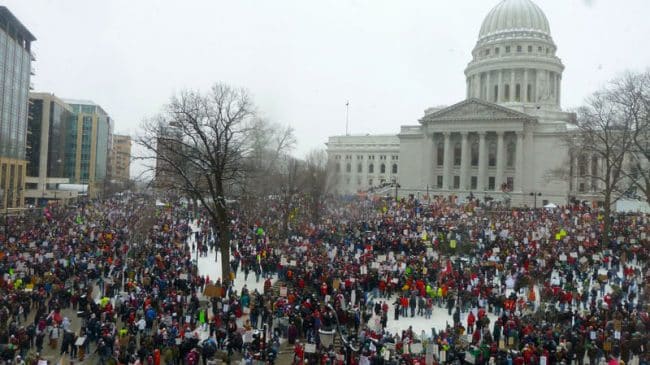A recent memo from the Wisconsin Legislative Fiscal Bureau shows that the state’s school districts are fleecing their residents with property tax hikes in order to fund non-existent students.
Thanks to a new “revenue limit adjustment” program, districts in the Badger State can now pretend that students who’ve left their traditional public schools through school choice are still enrolled. To make up this imaginary shortfall, districts have led ballot initiatives to raise property taxes so that they can keep the same overall amount of funding despite teaching fewer students. Typically, these referenda happen in special elections with low turn-out that benefit interests groups such as teachers unions.
It doesn’t end there. 115 of these school districts raised more money in property taxes than they ever lost to begin with through school choice enrollment changes. Not only did these districts leave taxpayers with a $19.8 million higher public education bill to cover the absence of public education, $3.7 million of that amount was more than they had even lost to begin with.
So let’s review: not only does Wisconsin law now let its school districts raise property taxes to pay for students that don’t exist, over a hundred just took money they weren’t even getting in the first place in order to educate less students than they originally had.
Sadly, Wisconsin’s gambit is nothing new. Marguerite Roza has written extensively on how funding phantom students only keeps districts from making hard decisions early on when they’re less painful. Chicago tried a similar tactic the past two years. Delaying the pain of enrollment cuts left them with drastic cuts this year and a credit downgrading.
It’s great that Wisconsin has five different school choice programs giving kids more educational options. But the state’s school districts shouldn’t get carte blanche on taxpayer pocket-books just because people make a choice that doesn’t benefit them.
